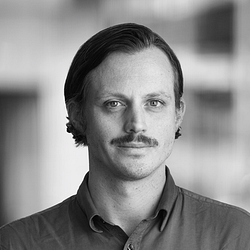News -
Swedwatch report highlights important issues
Swedwatch has presented an updated briefing report on the human rights impacts of Buchanan Renewables Fuel in Liberia in conjunction with Vattenfall and Swedfund’s exit of the project in 2012.
Fredrik Wijkander, Senior Investment Manager at Swedfund, comments:
‘Swedfund’s objective is to reduce poverty by investing in sustainable businesses in the world’s poorest countries, a crucial mission if we are to reach the Sustainable Development Goals of Agenda 2030. We continuously improve our processes, and we value the research made by Swedwatch, highlighting important issues. We regret the suffering of those affected and we have since taken measures to further improve our investment and exit procedures including human rights due diligence in high risk situations, as well as developing our sustainability work along with the United Nations Guiding Principles on Business and Human Rights.’
Vattenfall in partnership with Swedfund invested in the renewable energy company Buchanan Renewables Fuel in Liberia in 2010. Swedfund invested in a minority holding (10%) in partnership with Vattenfall (20%), conditional upon that Vattenfall would acquire all of Swedfund’s shares if and when Vattenfall would exit the project, which they did in 2012.
The investment was a means to secure the supply of biomass, a project which had the prerequisite of becoming a sustainable business, creating employment and reducing poverty in Liberia. The investment was also a means to contribute towards renewing the rubber industry, which the Liberian economy is heavily dependant upon. However, since the production of biomass was considerably lower than expected, the project did not develop according to plan. Vattenfall made the decision to terminate its investment in May 2012. Swedfund’s shares were subsequently sold to Vattenfall, in line with the partnership agreement.
Human rights are essential in all of Swedfund’s commitments. Between 2013 and 2014 Swedfund launched a new business model which rests on three equally important pillars; impact on society, sustainability and financial viability. Swedfund has also implemented a thorough ESG-model and continuously evaluates and follows-up on ESG aspects in the portfolio. By contractually binding ESG, we can systematically influence our holdings to put more weight on social and environmental matters. Our new business model applies to all investments made since 2013. Read more about our business model here.
The Swedish Agency for Public Management conducted a report earlier this year on how Swedfund, among the government and state-owned Swedish companies, comply with the UN Guiding Principles on Business and Human Rights, UNGP. The Agency notes that Swedfund’s human rights analysis since 2015 goes beyond only looking at social terms and working conditions. Overall the Agency recognizes that Swedfund since 2014 has a more complex approach to impact on society and sustainability. Report in Swedish here.
In order to further develop Swedfund’s human rights work and to ensure that Swedfund complies with UNGP and Sweden’s National Plan for Human Rights, Swedfund in 2016 performed a gap analysis on it’s human rights processes in relation to UNGP. The gap analysis among others focused on the evaluation and management of human rights risks and impact in connection to new and existing investments and exits. We continuosly work with evaluating and developing our work in relation to all our three pillars, including human rights.
